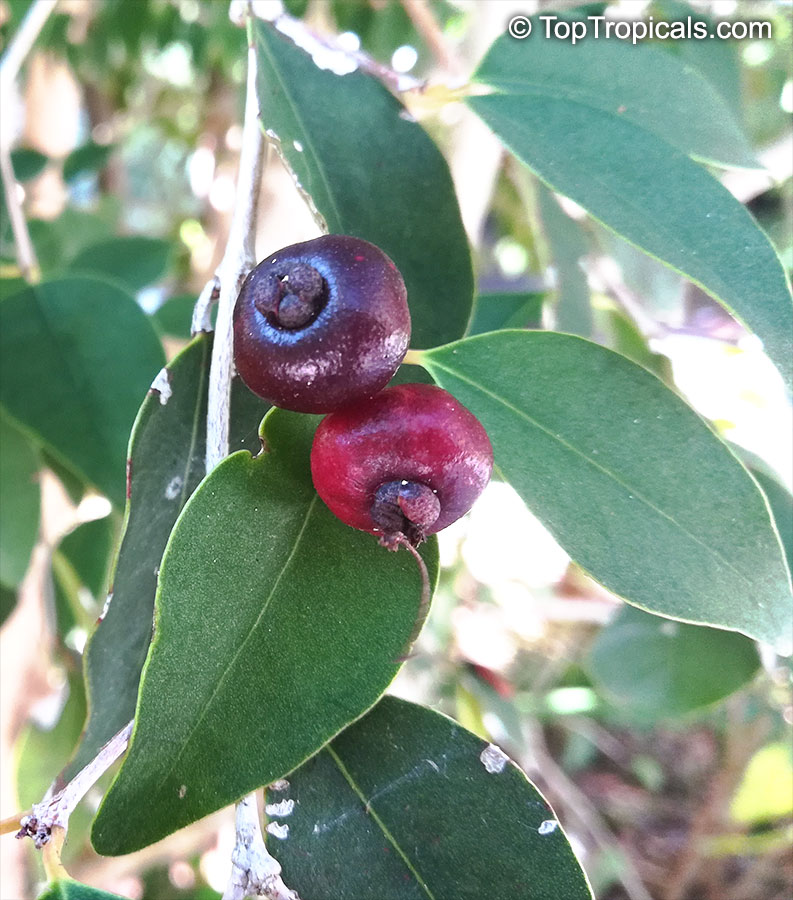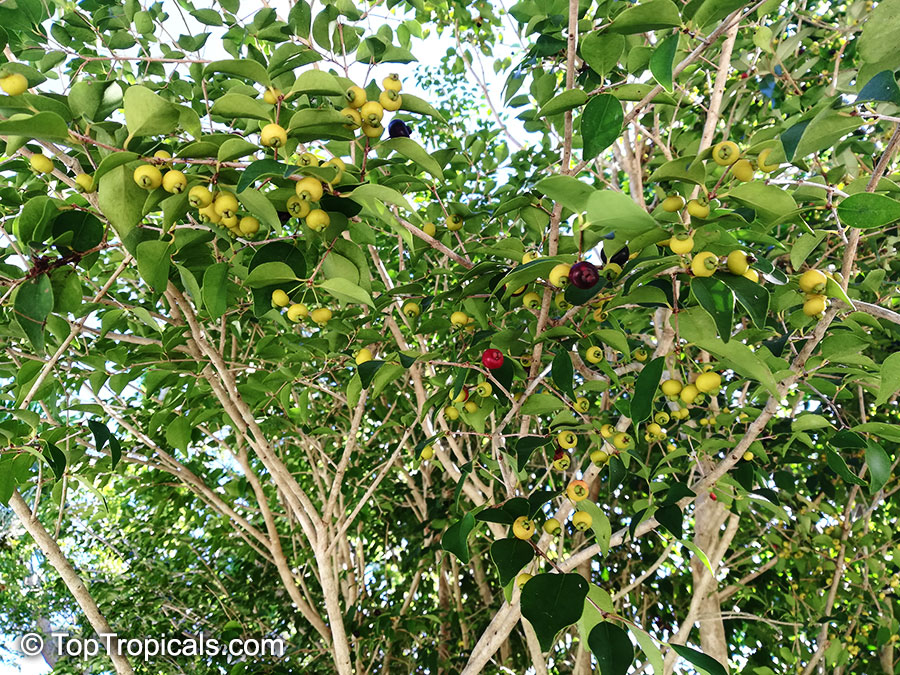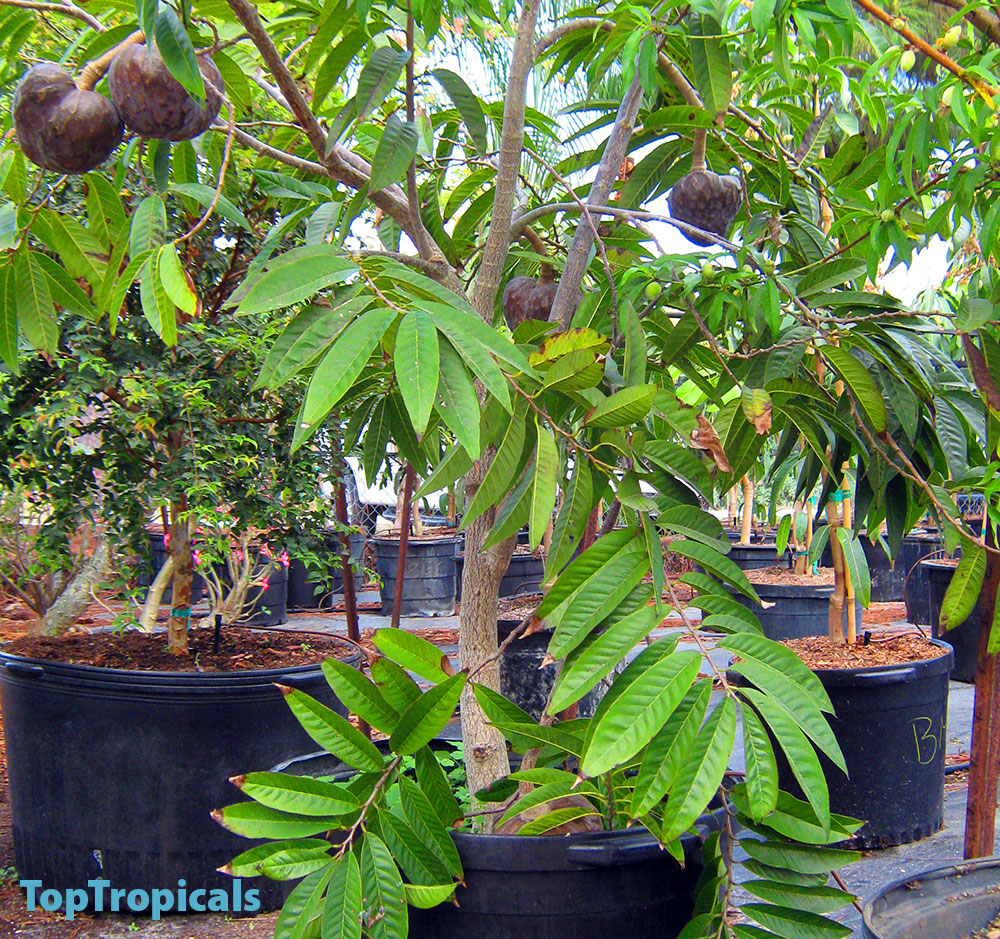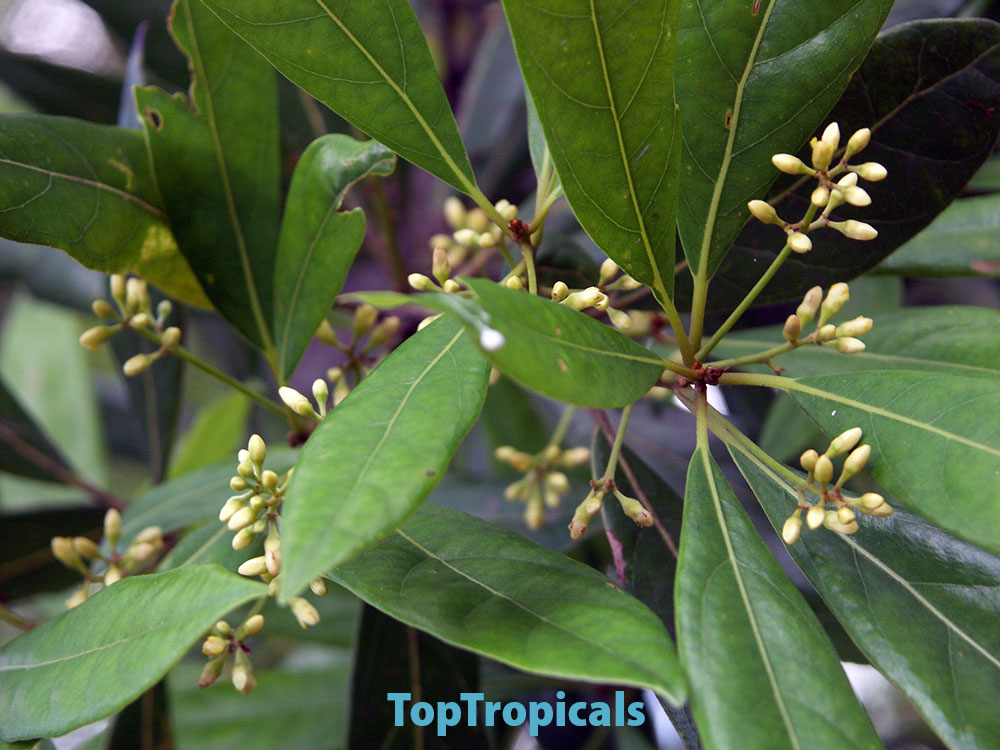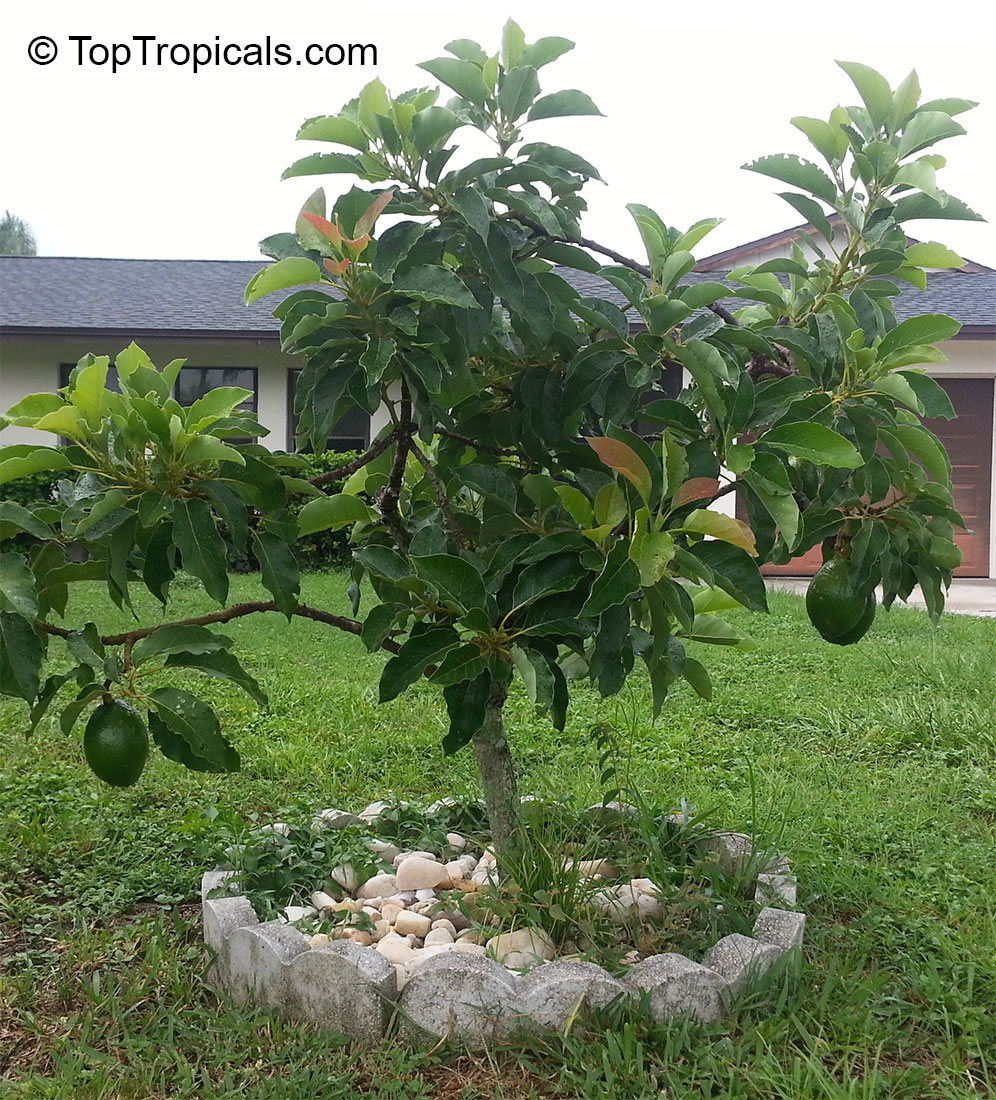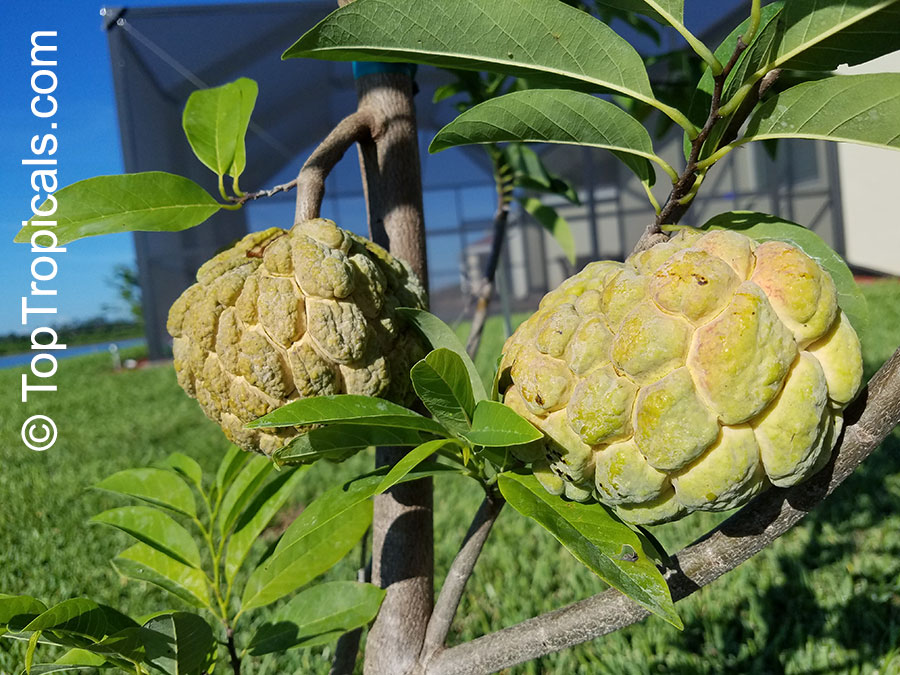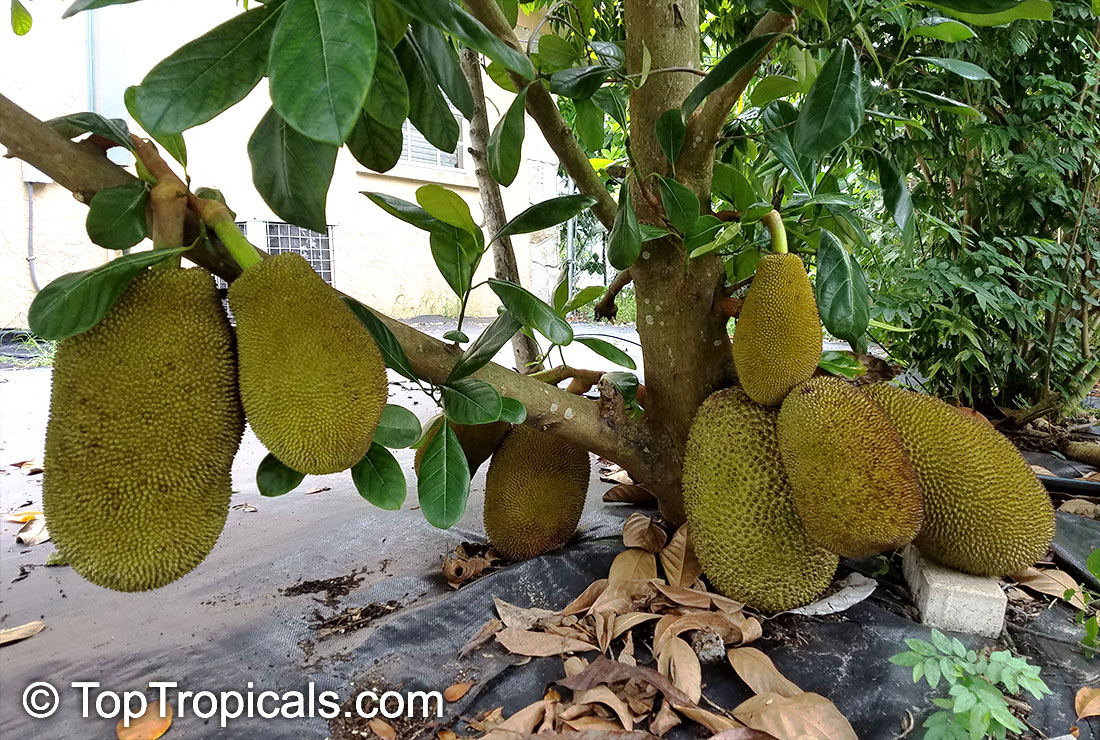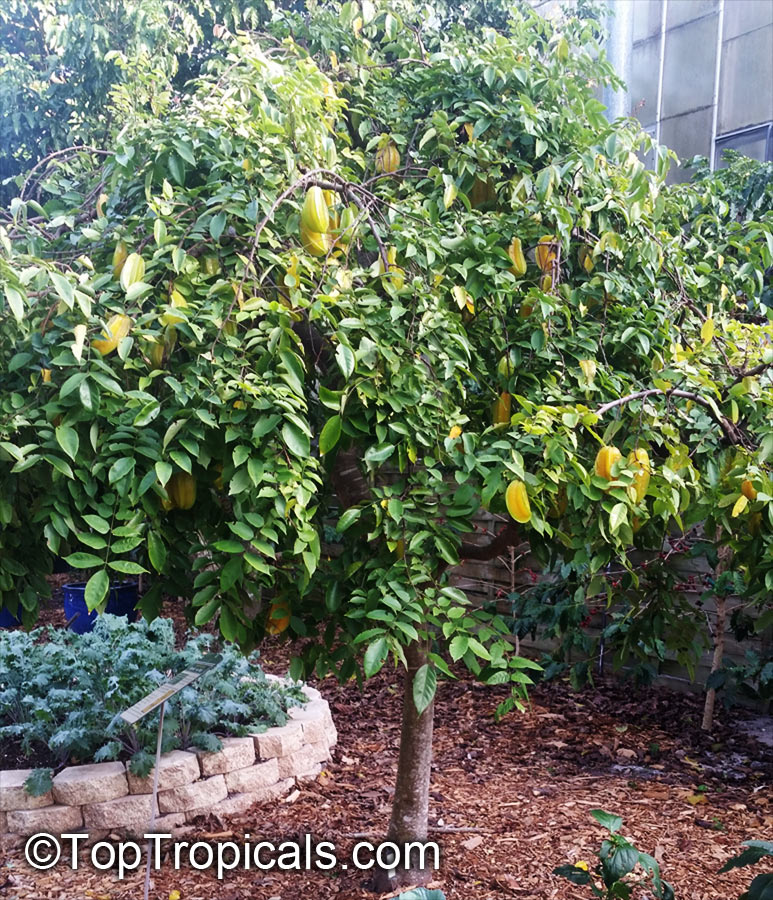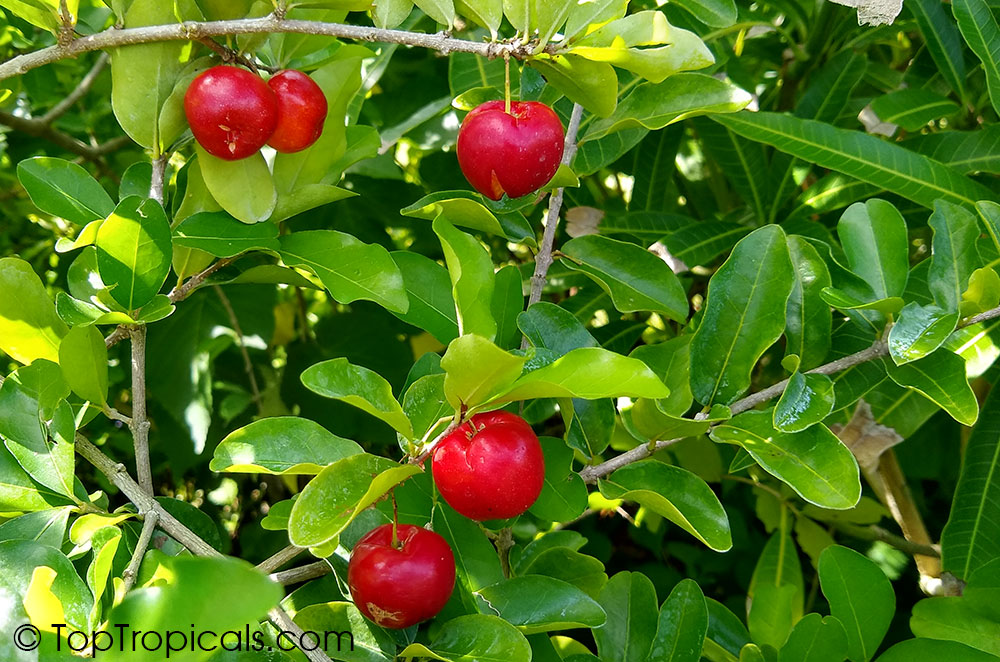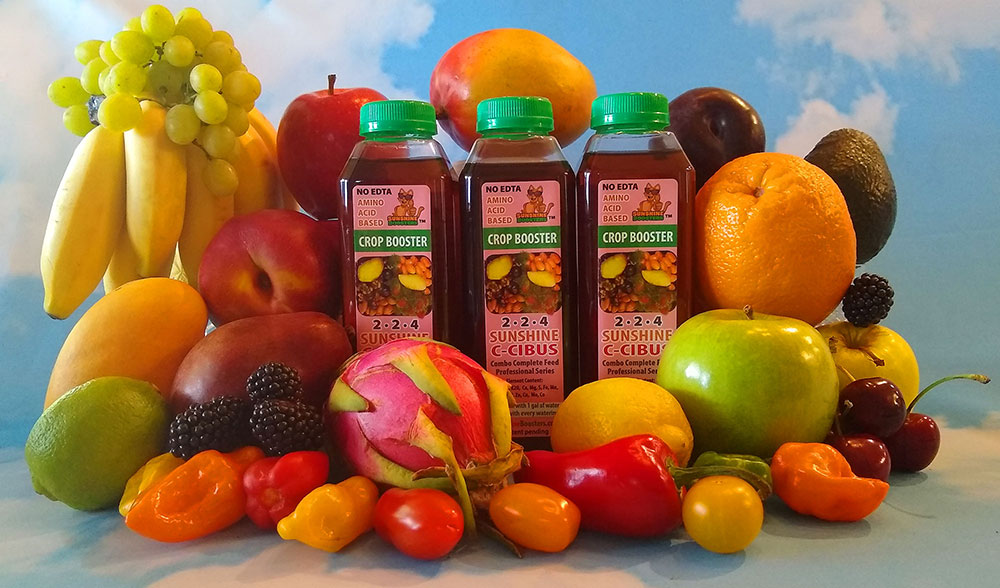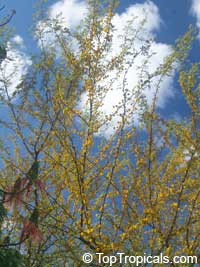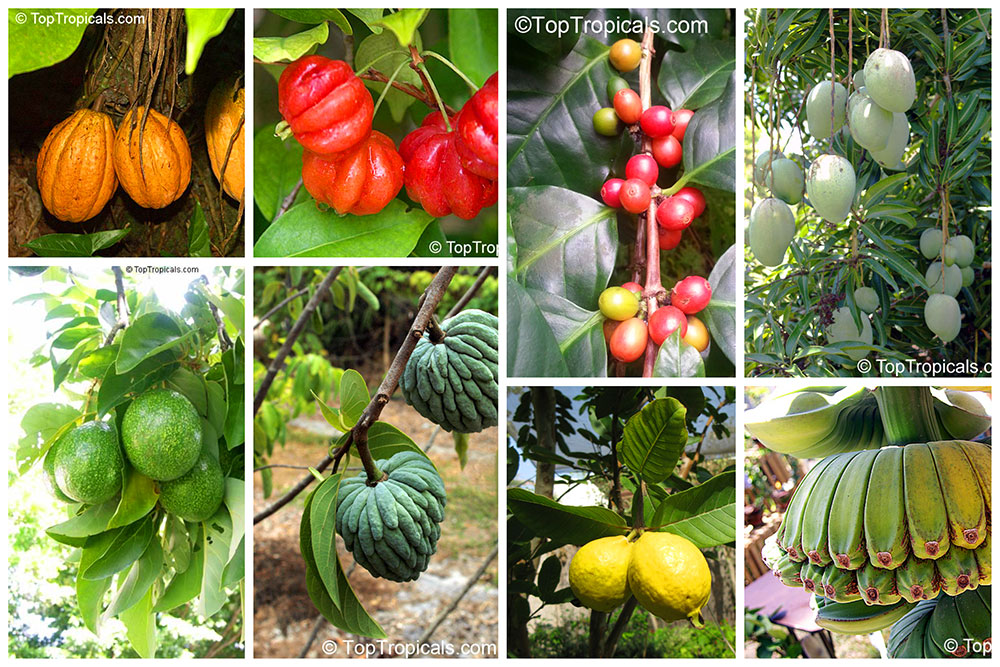Date:
Red Stopper Cherry
Rare plant from Key West
by Mark Hooten, the Garden Doc
Eugenia rhombea, commonly known in Florida as "Red Stopper", is one of four
species of Eugenia native to North America. It is a beautiful small tree,
bearing small shiny deep green leaves which are pinkish-orange-red when young,
giving them the appearance of a flowering tree at a distance when flushing out
new growth a number of times a year.
Its native range includes Florida, Bahamas, Cuba, Hispaniola and part of
Eastern Central America. However, here in Florida, it is federally listed as an
endangered species, only known from the lowermost Everglades and Keys, where
even there it is rare.
These elegant little trees grow to perhaps 12 or so feet tall, developing
an elegant, umbrella shaped canopy. At a distance, they rather resemble Ficus
benjamina, yet with a more orderly and refined appearance. In addition, they
develop fluffy white flowers with a delightful fragrance, followed by
holly-like long lasting red berries which are relished by wonderful song birds.
Although appearing delicate, this tropical species is surprisingly hardy,
and would likely even make striking, a one-of-a-kind houseplant in the
North.
These very few plants were grown from seeds collected near Royal Palm
Hammock in the Everglades, and and may not be available again for some time...
